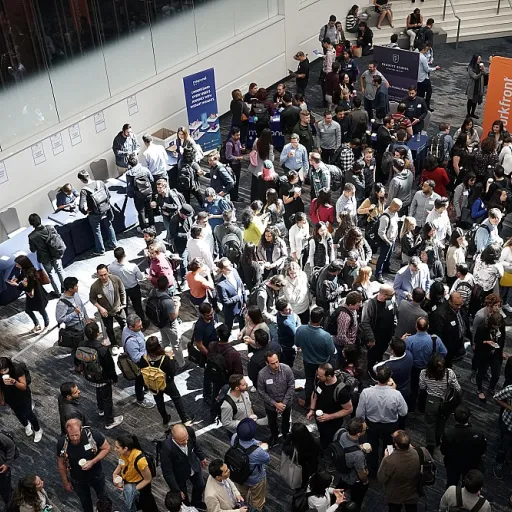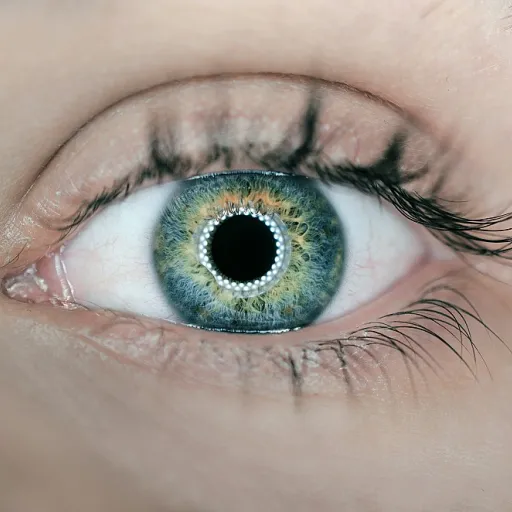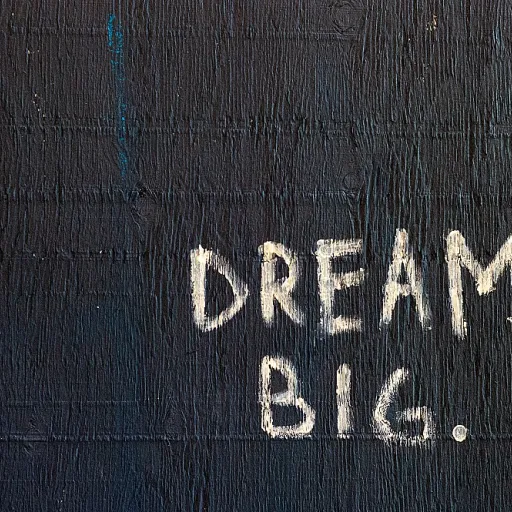
Defining a working interview and its role in recruitment
What is a Working Interview?
A working interview is a unique step in the recruitment process where job candidates perform actual job duties for a short period, usually a few hours or a day. Unlike a traditional job interview, where questions focus on experience and skills, a working interview allows both the employer and the candidate to see what working together would be like in real time. This approach is common in industries like dental practices, where hands-on skills and patient interaction are crucial. During a working interview, candidates may be asked to complete tasks that reflect the core responsibilities of the role, giving the potential employer a chance to assess candidate abilities beyond what a resume or standard interview can show.
The Role of Working Interviews in Recruitment
Employers use working interviews to evaluate candidate skills, work habits, and how well they fit into the company culture. For example, in a dental office, a candidate might assist with patient care, demonstrating both technical skills and bedside manner. This process helps employers answer important questions: Is the candidate a good fit for the team? Can they handle the job duties as expected? Are they comfortable with the pace and environment of the practice?
- Real-world assessment: Candidates perform tasks they would encounter in the actual job.
- Two-way evaluation: Both the employer and the candidate can determine if the role and company are a match.
- Immediate feedback: The interview process provides direct insight into candidate performance and potential.
Compensation for working interviews is a key consideration. In most cases, a paid working interview is the standard, ensuring candidates are fairly compensated for their time and effort. Employers should clearly communicate what to expect during the interview working period, including the tasks involved, the duration, and how compensation will be handled.
For job candidates, preparing for a working interview means understanding the job description, practicing relevant skills, and being ready to demonstrate their abilities in a real work setting. Knowing what a working interview entails can help candidates perform confidently and make the most of the opportunity.
If you want to learn more about making a strong first impression during the onboarding process, check out this guide on crafting the perfect welcome email for new hires.
How a working interview enhances communication between candidates and employers
Building Real-Time Communication Through Working Interviews
One of the most valuable aspects of a working interview is how it fosters open, real-time communication between job candidates and employers. Unlike a traditional job interview, where questions and answers can feel rehearsed, a working interview allows both parties to interact naturally in the actual work environment. This is especially important in fields like dental practices, where patient care and teamwork are central to daily job duties.
During a working interview, candidates perform tasks that mirror the real responsibilities of the role. This hands-on approach gives employers a chance to observe candidate skills in action, while candidates experience the company culture and workflow. Both sides can ask questions about what to expect, clarify job duties, and discuss how the role fits into the broader practice or company. This two-way communication helps both the candidate and the potential employer assess whether there is a good fit.
- Employers can evaluate how candidates handle real tasks, interact with team members, and respond to feedback.
- Candidates get a clear sense of what working at the company will be like, including the types of patients or clients they will serve and the expectations for performance.
Effective communication during a working interview also helps set expectations around compensation, paid working time, and the interview process itself. For example, candidates should know if the interview will be paid and what tasks they are expected to perform. Employers can use this opportunity to explain company values, answer questions about the role, and discuss how performance will be evaluated.
By encouraging open dialogue, working interviews reduce misunderstandings and help both sides make informed decisions. This approach is especially useful in industries where soft skills and direct interaction are as important as technical ability. For more insights on how hospitality and communication shape the candidate experience, you can explore the art of welcoming in HR communication.
Key benefits of working interviews for HR professionals
Why working interviews matter for HR professionals
Working interviews have become a valuable tool for human resources professionals looking to assess candidate skills in real-world scenarios. Unlike a traditional job interview, a working interview allows job candidates to perform actual job duties, giving both the employer and the candidate a clear understanding of what to expect in the role. This approach is especially relevant in fields like dental practices, where hands-on tasks and patient interactions are crucial to the job.
Advantages for HR and employers
- Direct skills assessment: HR professionals can observe how candidates perform essential tasks, making it easier to evaluate candidate abilities beyond what a resume or standard interview reveals.
- Better job fit: By seeing candidates work in the company environment, employers can determine if the candidate is a good fit for the team and workplace culture.
- Improved communication: Working interviews foster open communication between candidates and employers, helping clarify expectations about job duties, compensation, and the overall interview process.
- Reduced hiring risks: Employers can make more informed decisions, reducing the likelihood of hiring someone who may not meet the company’s needs or expectations.
- Enhanced candidate experience: Candidates gain firsthand insight into the role and the company, which helps them decide if the position aligns with their career goals and values.
Supporting HR decision-making
For HR professionals, the working interview is an effective way to evaluate candidate performance and communication skills in a real setting. This method also supports transparent discussions about compensation and job expectations, which can lead to better long-term outcomes for both parties. For more on how performance planning supports HR communication, see this guide to performance planners in HR communication.
Ultimately, integrating working interviews into the recruitment process helps HR professionals and employers make smarter, more confident hiring decisions, while also providing candidates with a realistic preview of the job and company culture.
Challenges and ethical considerations in working interviews
Addressing Fairness and Legal Boundaries
Working interviews can be a valuable tool for both employers and job candidates, but they come with important challenges and ethical considerations. One of the main concerns is ensuring fairness in the interview process. When candidates perform actual job duties, it is crucial for the company or dental practice to clearly define what tasks will be expected and how the candidate will be evaluated. This helps avoid confusion and ensures all candidates are assessed equally.
Compensation and Labor Laws
Another key issue is compensation. In many regions, candidates who participate in a working interview must be paid for the work they perform, even if the interview is part of the selection process. Failing to provide paid working interviews can lead to legal risks and damage the employer’s reputation. HR professionals should always check local labor laws and communicate clearly with candidates about compensation for any tasks completed during the interview working period.
Transparency and Communication
Transparency is essential. Candidates should know what to expect during the working interview, including the specific job duties, the duration of the interview, and how their performance will be assessed. This is especially important in roles where patient care or sensitive information is involved, such as in dental practices. Clear communication helps build trust and ensures that both the employer and the candidate understand their responsibilities.
Ethical Use of Candidate Skills
Employers must avoid using working interviews as a way to get free labor or to fill temporary staffing gaps. The purpose of the interview should be to assess candidate skills and determine if there is a good fit for the role, not to exploit job candidates. Ethical considerations also include respecting the privacy and dignity of candidates throughout the interview process.
- Always provide clear instructions and expectations for the interview.
- Ensure candidates are paid for any work performed.
- Follow all relevant labor laws and company policies.
- Use the working interview only to evaluate candidate suitability, not as a substitute for regular staffing.
By addressing these challenges and ethical considerations, HR professionals can create a fair and effective working interview process that benefits both employers and job candidates.
Best practices for organizing a successful working interview
Steps to Structure a Productive Working Interview
Organizing a successful working interview requires careful planning and clear communication. The goal is to create an environment where both the candidate and the employer can accurately assess if there is a good fit for the job and the company culture. Here are some practical steps to help you prepare a working interview that benefits everyone involved:- Define the Role and Tasks Clearly: Before the interview, outline the specific job duties and tasks the candidate will perform. For example, in a dental practice, clarify if the candidate will interact with patients, assist with procedures, or handle administrative work. This helps set expectations for what the working interview will involve.
- Communicate the Interview Structure: Let candidates know what to expect during the interview process. Explain the duration, the types of tasks, and who they will be working with. Transparency helps reduce anxiety and ensures candidates are prepared for the working interview.
- Ensure Legal and Ethical Compliance: Make sure the working interview is compliant with labor laws. Candidates should be paid for their time, even if it is a short assessment. Clarify compensation details before the interview to avoid misunderstandings about paid working interviews.
- Prepare the Team: Inform your staff about the working interview. Let them know the candidate’s role and how they can support the process. This is especially important in environments like dental offices, where teamwork and patient interaction are key.
- Develop an Evaluation Framework: Decide in advance how you will assess candidate skills and performance. Create a checklist or rubric to evaluate how well candidates perform job tasks, communicate with colleagues, and fit into the company culture.
- Encourage Questions: Allow candidates to ask questions about the job, company, and expectations. This two-way communication helps both parties determine if the role is a good match.
- Document the Process: Keep records of the interview process, tasks assigned, and feedback collected. This ensures fairness and helps with future hiring decisions.
Tips for a Smooth Experience
- Set realistic scenarios that reflect actual job duties.
- Provide necessary tools and resources so candidates can perform at their best.
- Respect the candidate’s time and privacy, especially when handling sensitive information or patient data in a dental or healthcare setting.
- Be ready to answer questions about compensation, company culture, and growth opportunities.
Communicating outcomes and feedback after a working interview
Delivering Clear and Constructive Feedback
After a working interview, it is essential for employers to provide candidates with timely and transparent feedback. This step helps candidates understand how they performed during the interview process, what tasks they excelled at, and where there may be room for improvement. Clear communication about the candidate’s skills and how they matched the job duties or role expectations is key to maintaining a positive candidate experience, even if the outcome is not a job offer.
Discussing Compensation and Legal Considerations
Employers must address compensation for the working interview, especially in sectors like dental practices where candidates may perform actual work or interact with patients. Paid working interviews are not only ethical but often required by law. Clearly outline what the candidate will be paid for the tasks completed during the interview, and ensure all legal requirements are met. This transparency builds trust and demonstrates the company’s commitment to fair employment practices.
Communicating the Outcome and Next Steps
- Inform the candidate about the decision as soon as possible, whether they are moving forward or not.
- Offer specific examples from the interview working session to support your decision, such as how the candidate handled job duties or interacted with the team.
- For candidates who are not selected, provide constructive feedback and encourage them to ask questions about the interview process or what to expect in future opportunities.
- If the candidate is a good fit, outline the next steps in the hiring process, including any additional assessments or onboarding procedures.
Maintaining Professional Communication
Throughout the process, maintain a professional and respectful tone. Remember that the way you communicate outcomes after a working interview reflects on your company or practice’s reputation. Candidates appreciate honesty and clarity, whether they are offered the job or not. This approach also encourages positive word-of-mouth and helps attract strong job candidates in the future.













